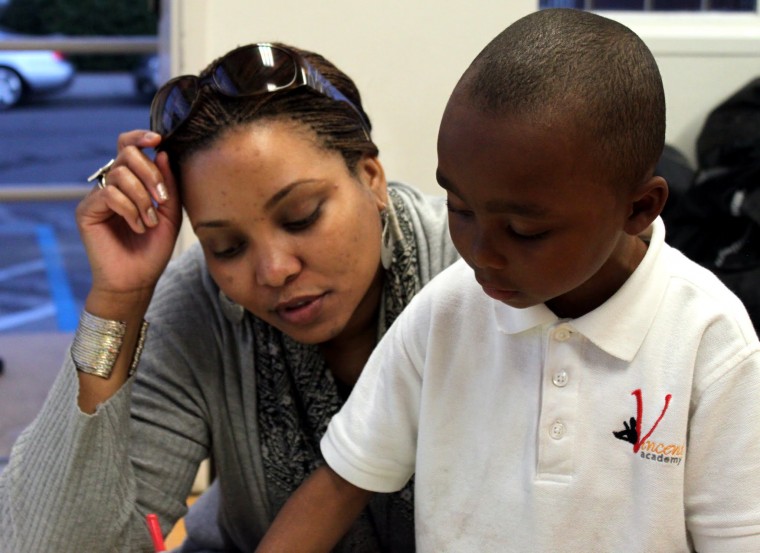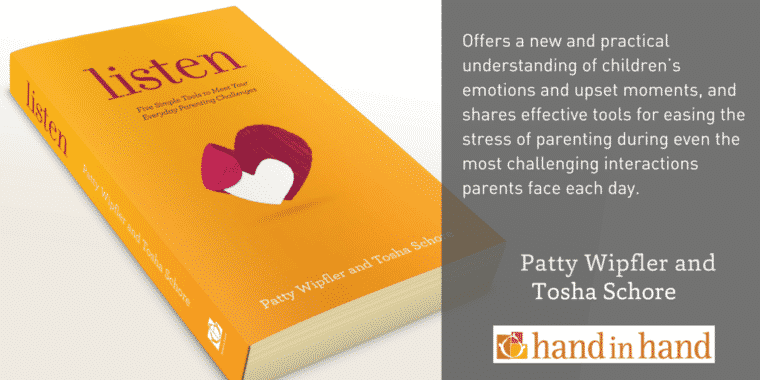Q. My 6-year-old seems to be suffering from performance anxiety and perfectionism not only at school but overall in his life. I'd love to get some ideas or help with this issue. Specifically what I notice is that my son will start on a homework activity (for example, a math word problem) and get into an emotional frenzy such that he cannot even read the actual word problem (which he is easily capable of doing). This problem is not just limited to schoolwork, but affects every area of my son's life.
Dear Thoughtful Mother:
Yes, it looks like feelings have trapped your little boy into a box that is getting tighter and tighter for him. Good for you for reaching out for some ideas! We'll share several ways to help kids with perfectionism.
 One way to look at his fear of making mistakes is to see it as a symptom of some knot of fear that he carries into every situation. If you just address the symptom—the difficulty with math, for instance—the things you do will be less effective than if you address this as a situation that calls for your help with his fears in general.
One way to look at his fear of making mistakes is to see it as a symptom of some knot of fear that he carries into every situation. If you just address the symptom—the difficulty with math, for instance—the things you do will be less effective than if you address this as a situation that calls for your help with his fears in general.
One way to help children gain confidence in a global way is to play hard with them, to play rambunctiously. Children’s strength and confidence is built with pillow fights, chasing through the house, horseback rides that end with you bucking him (carefully, but not too carefully) off onto a soft carpet, contests in which he jumps on the bed or the sofa while you try (but mostly fail) to catch his feet, and putting him on your back and giving him bouncy rides around the house. During this kind of play, watch carefully to see what lets him laugh, and do more of that, working to get as many giggles as you can. Take the less powerful, less capable role in the play. Be goofy, try to catch him but trip and fall, offer kisses and chase him all over to land just one. You don’t need much of an excuse to play this way. Just start, notice the moments when laughter breaks through, and do more of whatever created that opening.
Try to sustain this kind of play, which we call Playlistening. Be watchful not to play so forcefully that you overwhelm and frighten him, but do challenge him every now and again in the middle of play he knows he can handle. You don’t want him to feel that he’s in danger of being defeated. Always give him a chance to rise again to “get' you back. His laughter helps him to offload fear and build a sense of resilience. When he gets hurt (minor bumps may bring floods of tears or anger), just move in and listen. Let him cry passionately for as long as he needs to. These hearty cries, with your support, are part of what's necessary to help him move from easily feeling overwhelmed by small tasks toward feeling his power even when he’s challenged.
Vigorous Playlistening sets the stage for this next piece of work, which will address his fear of making mistakes more directly.
I’ll now describe the Staylistening tool for helping him with his fear. You’ve told him, probably many times by now, that mistakes are OK, and are part of the learning process. That’s important, but it’s a step you can now consider “done.” Your verbal guidance has done as much as it can. Concepts don't help us when we're upset. When his “I’m overwhelmed” feelings come up, they blot out the good things you've tried to convey. You can't teach him anything during those moments. What you can do is pay attention and offer your caring while he is overcome by the feelings he has and offloads them in tears and tantrums.
So, let's imagine that he’s become flustered over a word problem in math. You say, “I’ll help you while you try the word problem again,” with a light and encouraging tone. He says he doesn't want to, and feelings arise. Move in, get close, and say, “Well, I’ll help you. Let’s take a look at it.” Then he gets angry and says he doesn't want to. Stay close. Listen. Let him become engulfed in feelings. Be as warm and confident as you can be, under the circumstances. When his crying or tantrum slows down, say, “I think you can probably do it. Let’s take another look.” Let him blow up. Let him cry. Let him be beyond reason. Let him be angry with you. Let him say horrible things about you and school and anything else that’s on his mind. Listen. Your attention is a powerful antidote to the feeling he is battling.
Keep putting forward the idea that he can do it. That you will stay until he is ready to try again. That it will be good to try again. That he'll figure it out. But don't talk a lot. Just say a few words now and then while he rages or cries. Keep him there, where he is positioned to try again. Don't insist that he try again within any particular timeframe. The expression of feelings is healing, and it will take whatever time it takes. There's no rush. He's in the middle of an emotional bad dream, and his perception is warped by the bad feelings as they make their exit. When he has worked through a chunk, he'll be able to think and try again.
This is the healing process. This is discouragement melting. This is frustration draining away. This is, “I can't do it! I’m no good!” washing out of him. Don't try to reason. Don’t try to convince him that he’s smart. Instead, listen till he feels better–it may be a long time. But he will feel better when he’s done, if you can listen until he is done.
So, any time he goes into an upset, about math or anything else, get close, and offer very mild encouragement. If he says, “I hate math! I’m terrible at it,” say something like, “That can change, sweetie. It’s not always going to feel this way, or, “Honey, I think you probably can do this.” (Not “Oh, sweetie, you are SUCH a smart boy! Of COURSE you can!”) Just indicate mildly that things might turn out OK in the end, and that he's not alone–you're with him while he feels this badly. You'll be his anchor through some world-class emotional episodes. And he'll move this fear out of his way.
A word about praise here: the effect of constant praise for children’s efforts and the work they produce is not entirely helpful. What actually is helpful for our children is those moments when they feel good about what they’ve done. Our feelings about their work are important, but secondary. The most powerful motivation to learn is a child’s own sense of accomplishment and mastery. And they “get it” when we’re pleased, even without words of praise. They can hear delight in our voices, and see it on our faces. If we can get enough listening time from another parent so that our tension has an outlet, then we can feel and show our genuine delight, so our children also feel “seen” in their accomplishments.
As behavior expert Alfie Kohn points out, we want children to work for their own inner satisfaction, rather than to try hard to earn our praise. Special Time is a good tool for helping children feel that inner satisfaction, as well as our pleasure in them. During Special Time, we pay pleased attention to them, and they do what they love to do. This keeps children aware of their own feelings, and able to access our delight in them by asking for Special Time. They master things because it feels good to master things. We want to notice them, acknowledge them, but not use praise as part of a “reward system.” Connection with us, which will foster their natural drive toward mastery, is all they need.
I hope this is helpful to you. We'd love to hear what you try, and how. Come share what you discover in the Hand in Hand Parent Club Community. It may sound like a lot of work, but it happens only one minute at a time, and the rewards last a lifetime!
Yours,
Patty
Patty's new book Listen: Five Simple Tools to Meet Your Everyday Parenting Challenges is out now!
From the Hand in Hand Toolbox:
Beat the afterschool blah blahs and bond with your child through play
Here is Help For The Homework Struggles
Read how to help your child when they want to quit

